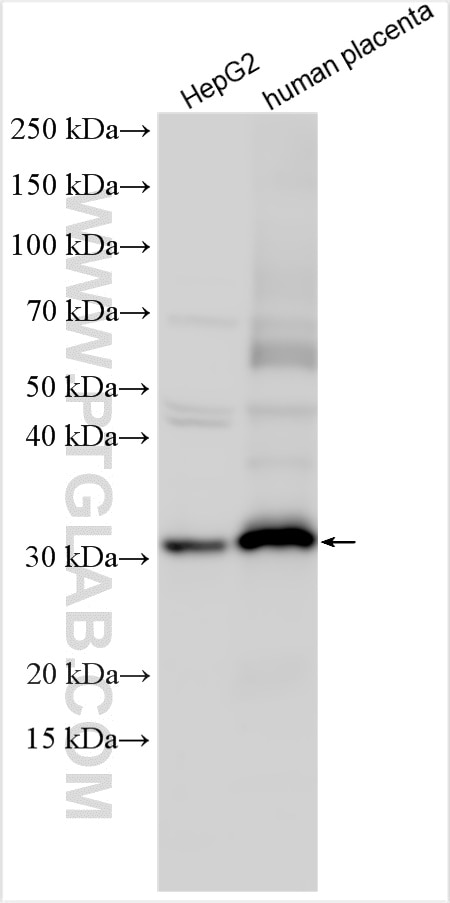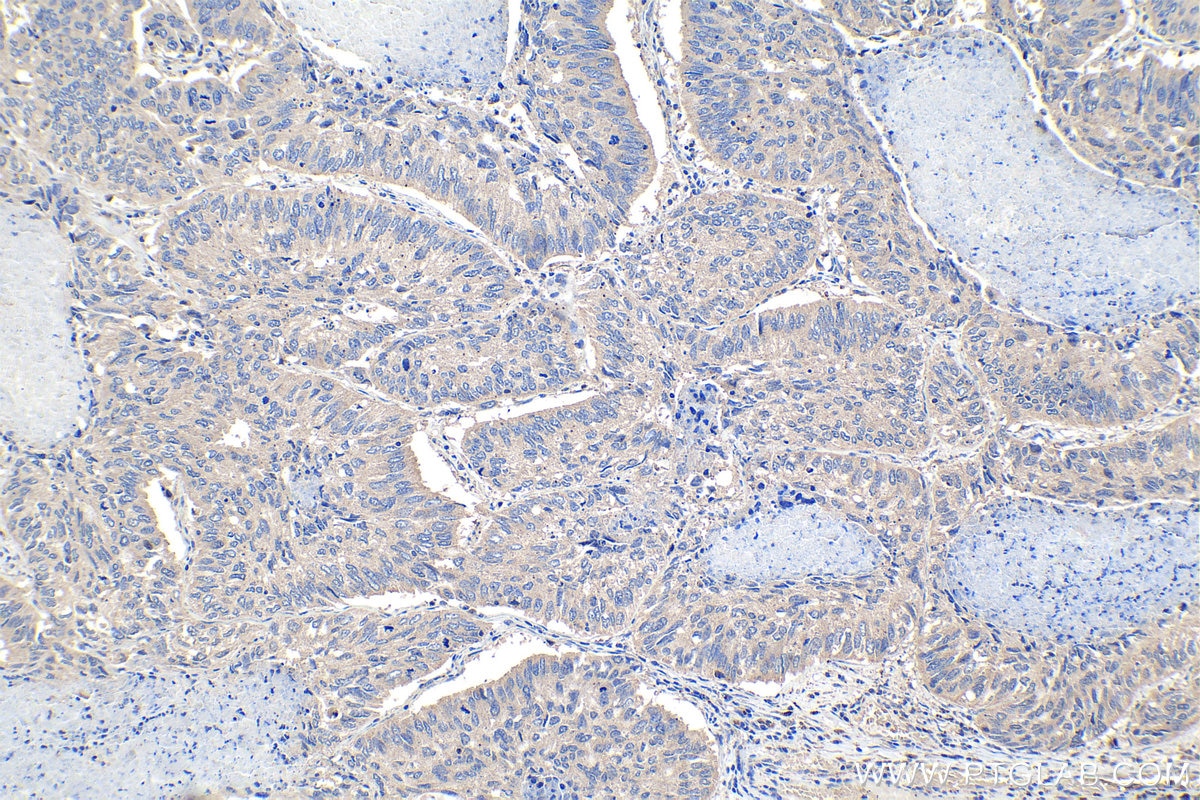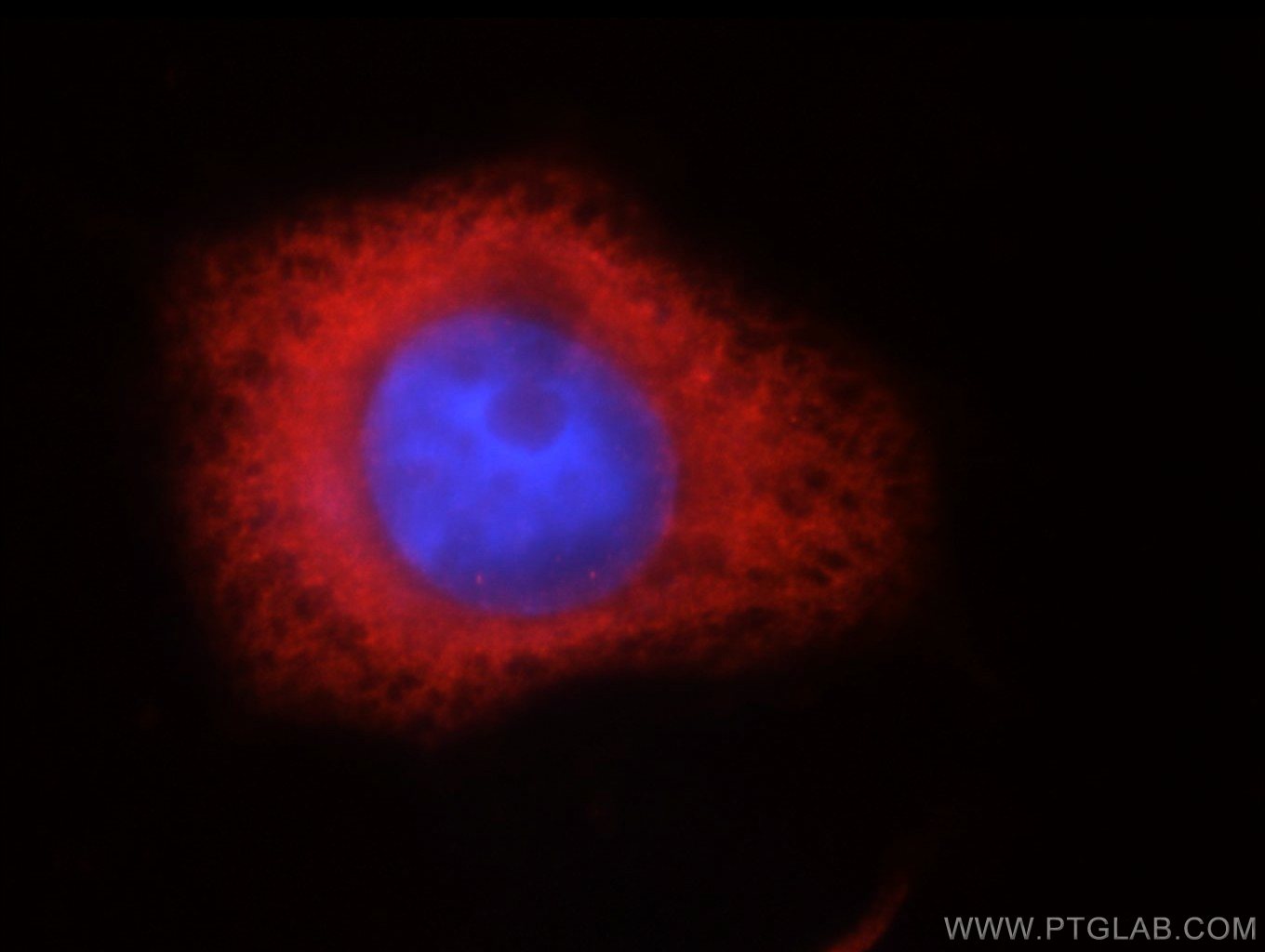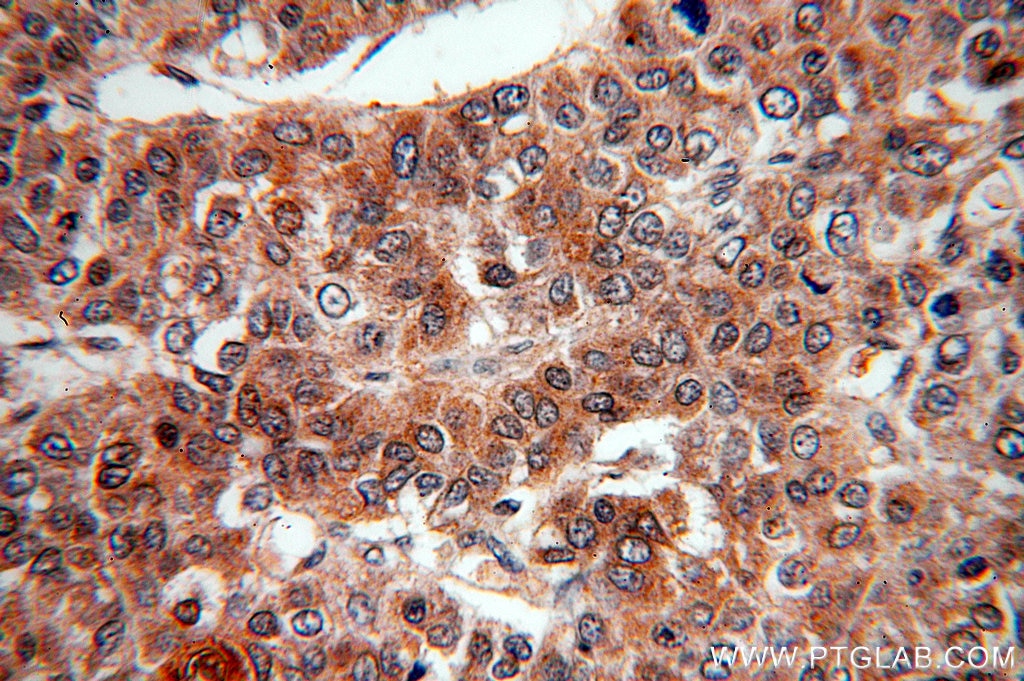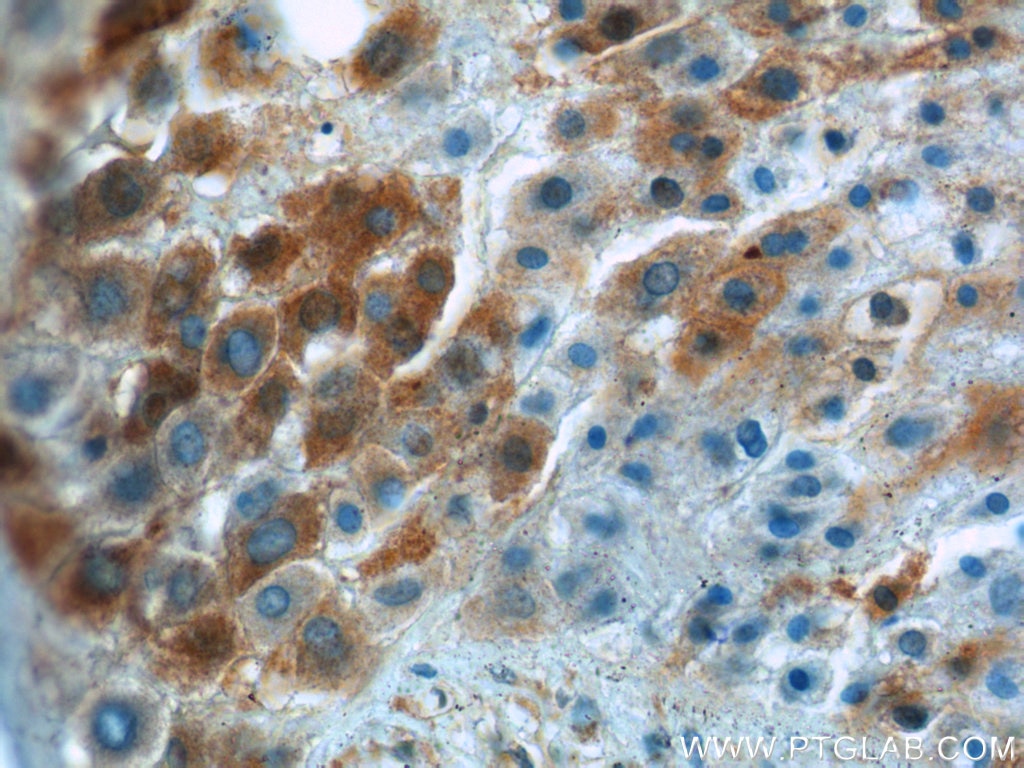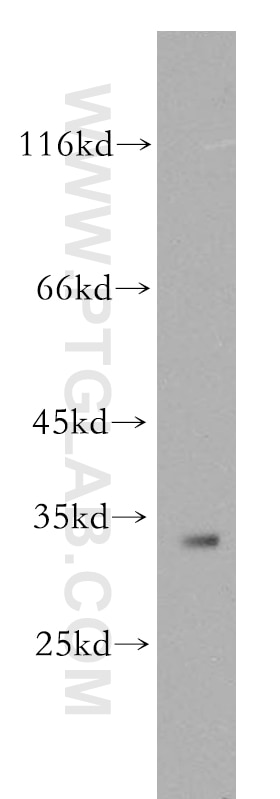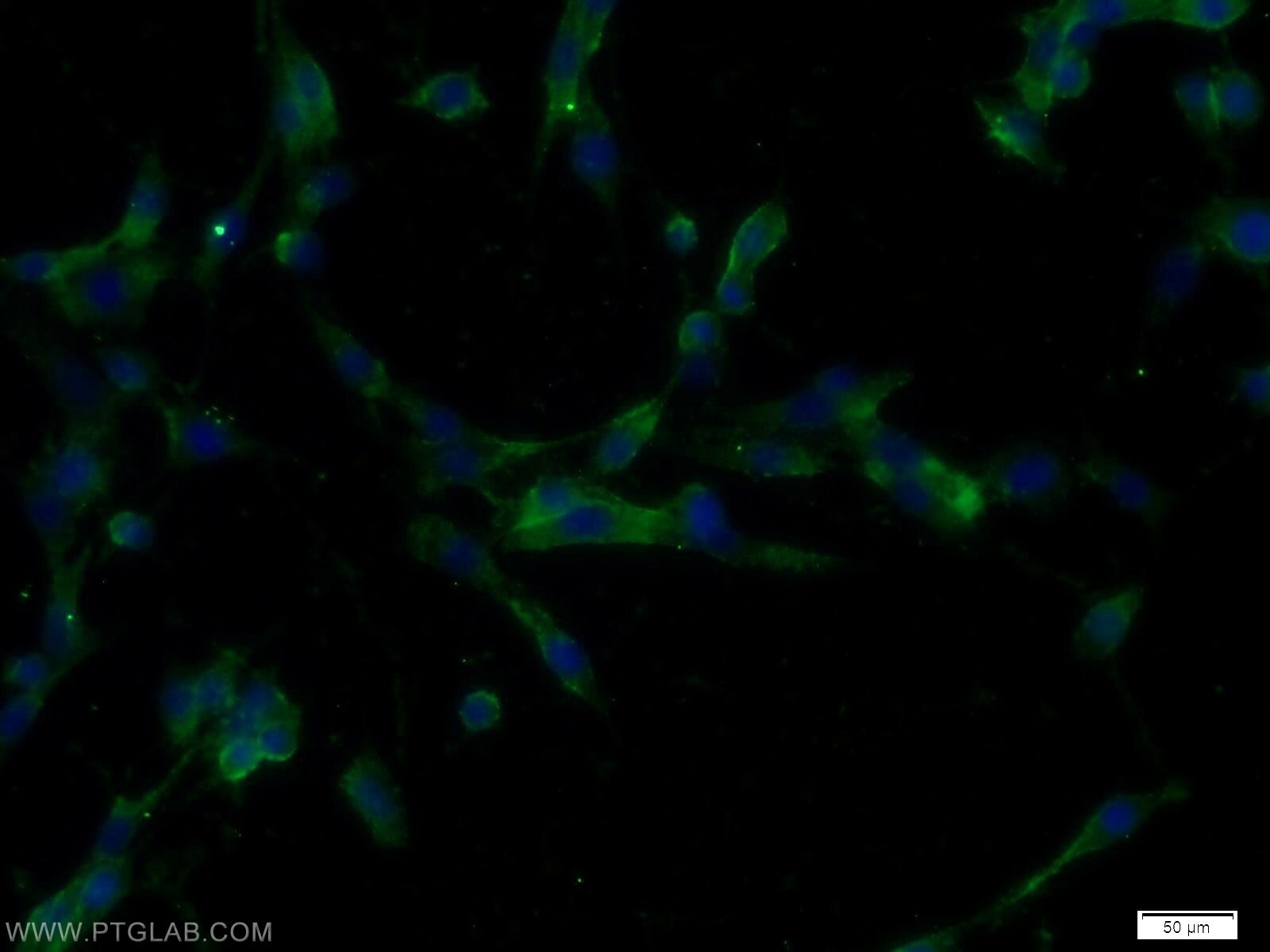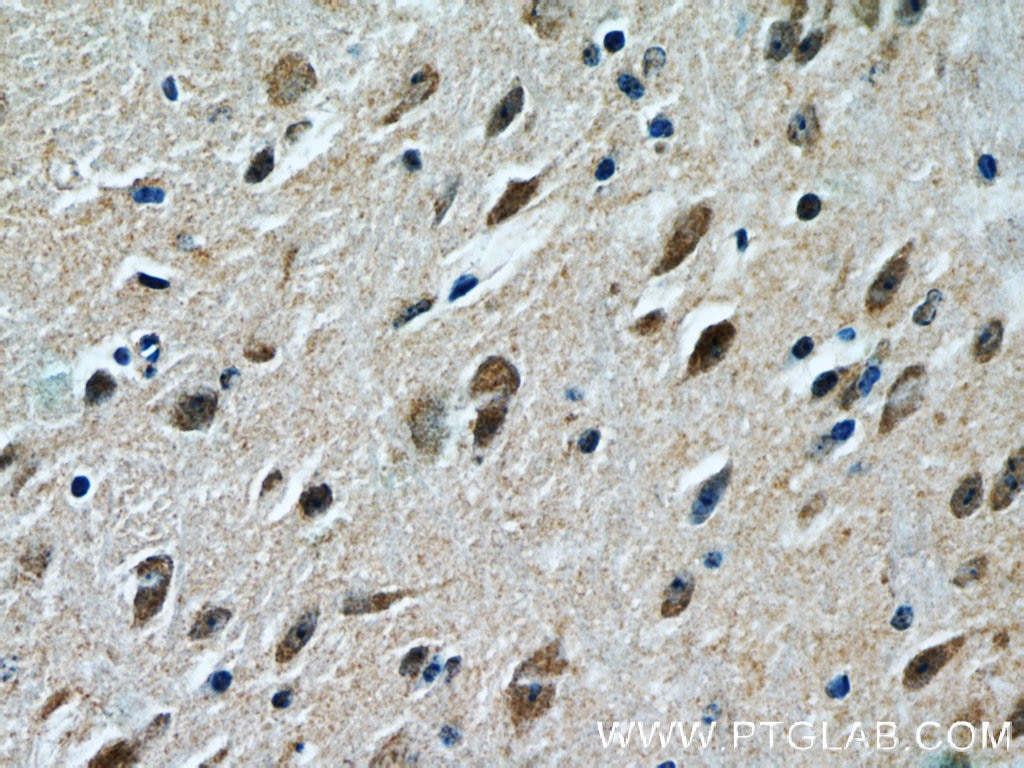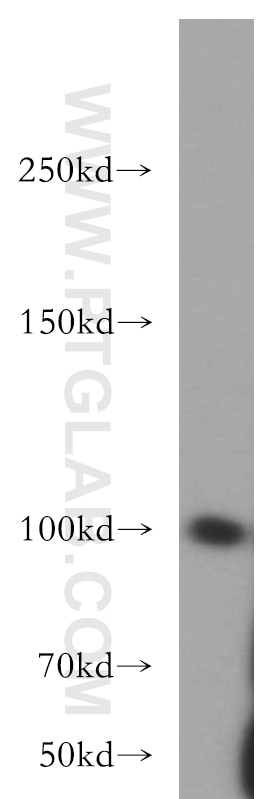Anticorps Polyclonal de lapin anti-IGFBP1
IGFBP1 Polyclonal Antibody for WB, IHC, ELISA
Hôte / Isotype
Lapin / IgG
Réactivité testée
Humain
Applications
WB, IHC, ELISA
Conjugaison
Non conjugué
N° de cat : 13981-1-AP
Synonymes
Galerie de données de validation
Applications testées
| Résultats positifs en WB | cellules HepG2, placenta humain |
| Résultats positifs en IHC | tissu de cancer du poumon humain, il est suggéré de démasquer l'antigène avec un tampon de TE buffer pH 9.0; (*) À défaut, 'le démasquage de l'antigène peut être 'effectué avec un tampon citrate pH 6,0. |
Dilution recommandée
| Application | Dilution |
|---|---|
| Western Blot (WB) | WB : 1:5000-1:50000 |
| Immunohistochimie (IHC) | IHC : 1:500-1:2000 |
| It is recommended that this reagent should be titrated in each testing system to obtain optimal results. | |
| Sample-dependent, check data in validation data gallery | |
Applications publiées
| WB | See 8 publications below |
| IHC | See 2 publications below |
Informations sur le produit
13981-1-AP cible IGFBP1 dans les applications de WB, IHC, ELISA et montre une réactivité avec des échantillons Humain
| Réactivité | Humain |
| Réactivité citée | Humain |
| Hôte / Isotype | Lapin / IgG |
| Clonalité | Polyclonal |
| Type | Anticorps |
| Immunogène | IGFBP1 Protéine recombinante Ag5026 |
| Nom complet | IGF binding protein 1 |
| Masse moléculaire calculée | 28 kDa |
| Poids moléculaire observé | 28-35 kDa |
| Numéro d’acquisition GenBank | BC057806 |
| Symbole du gène | IGFBP1 |
| Identification du gène (NCBI) | 3484 |
| Conjugaison | Non conjugué |
| Forme | Liquide |
| Méthode de purification | Purification par affinité contre l'antigène |
| Tampon de stockage | PBS avec azoture de sodium à 0,02 % et glycérol à 50 % pH 7,3 |
| Conditions de stockage | Stocker à -20°C. Stable pendant un an après l'expédition. L'aliquotage n'est pas nécessaire pour le stockage à -20oC Les 20ul contiennent 0,1% de BSA. |
Informations générales
IGF-binding proteins (IGFBPs) family contains members like IGFBP-1, -2, -3, -4,-5 and-6. IGFBPs prolong the half-life of the IGFs and have been shown to either inhibit or stimulate the growth promoting effects of the IGFs on cell culture. They alter the interaction of IGFs with their cell surface receptors. IGF-I physically interacts with IGFBP-1 and that IGFBP-1 also binds to an integrin receptor, but the effect of IGFBP-1 on cell migration may be independent of IGF-I and is probably mediated through the alpha 5 beta 1 integrin. Transgenic mice models demonstrated that IGFBPs played important roles in the pathogenesis of obesity and INS resistance. Studies conducted in humans demonstrated the close relation between IGFBPs and the components of the metabolic syndrome.
Protocole
| Product Specific Protocols | |
|---|---|
| WB protocol for IGFBP1 antibody 13981-1-AP | Download protocol |
| IHC protocol for IGFBP1 antibody 13981-1-AP | Download protocol |
| Standard Protocols | |
|---|---|
| Click here to view our Standard Protocols |
Publications
| Species | Application | Title |
|---|---|---|
Clin Transl Med Melatonin inhibits lipid accumulation to repress prostate cancer progression by mediating the epigenetic modification of CES1. | ||
Lung Cancer Molecular profiling of thymoma with myasthenia gravis: Risk factors of developing myasthenia gravis in thymoma patients. | ||
Phytomedicine Effects of natural 24-epibrassinolide on inducing apoptosis and restricting metabolism in hepatocarcinoma cells | ||
Biol Reprod IGFBP1 Involved in the Decreased Birth Weight Due to Fetal High Estrogen Exposure in Mice. | ||
Reprod Biol Endocrinol Increased expression of prokineticin 2 and its receptor in endometrium of recurrent implantation failure patients decreased the expression of MMP9 important for decidualization. | ||
